Myths.
Every job has them.
Those niggling misconceptions often fed by people’s prejudices or misunderstandings.
Our roadside enforcement work is no different.
I heard them all when I was a frontline enforcement officer. Now I’m in a management role, I often hear the same untruths at seminars and conferences.
Here are the top myths surrounding our enforcement work and the reality behind them…
1. Our roadside checks include cars
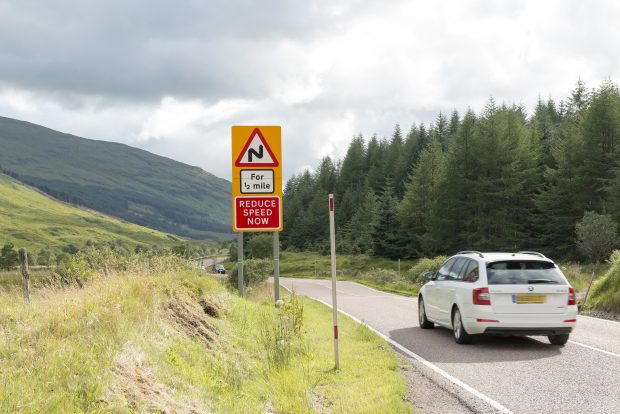
Generally speaking, DVSA does not inspect cars and concentrates its enforcement efforts on commercial vehicles.
The only exception to the above is when DVSA works with other enforcement agencies, such as the Police, when we will inspect cars and other non commercial vehicles to ensure they are roadworthy.
Why do we not inspect cars?
Commercial vehicles – whether they’re lorries, vans or large passenger vehicles – pose a higher risk to road users.
Often their sheer size means the impact of something going wrong is huge. It’s potentially even worse when you’re talking about a coach with 70 passengers on board.
Unlike your average car driver with a short daily commute, commercial drivers are on the road for long hours.
Our role is to make sure they’re taking breaks and not driving for too long to keep us all safe. We’ve dealt with over 15,000 serious drivers’ hours offences since last April.
Trailers and caravans
The Government also requires us to check other road users such as vehicles towing trailers and caravans as part of wider road safety initiatives.
The Police are responsible for roadside enforcement of cars. However, we work with the Police in joint enforcement operations targeting all vehicles.
We do cover cars with our statutory work on MOTs.
2. We pull over all lorries
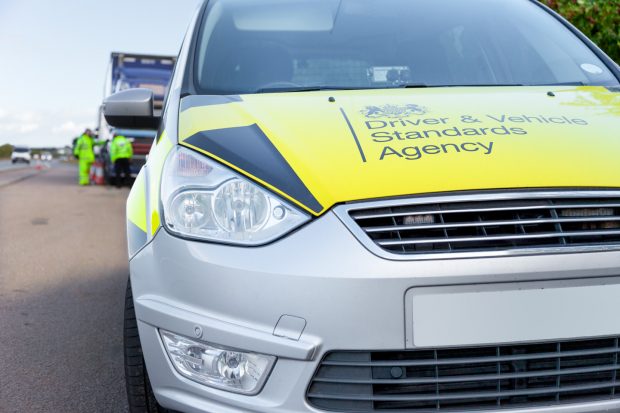
Our enforcement is focused on the bad guys – the serially non-compliant operators – to improve safety and traffic flows.
We are very unlikely to stop vehicles run by the safest operators, such as those belonging to our earned recognition scheme, unless there is an obvious visual problem. This is an extra ‘carrot’ to encourage operators to keep their vehicles in good order and stick to the rules.
Our enforcement officers check how compliant an operator is at the touch of a button.
Operators’ compliance ratings are based on previous roadside checks along with other intelligence such annual test results of their vehicles.
3. We keep the money from our roadside fines
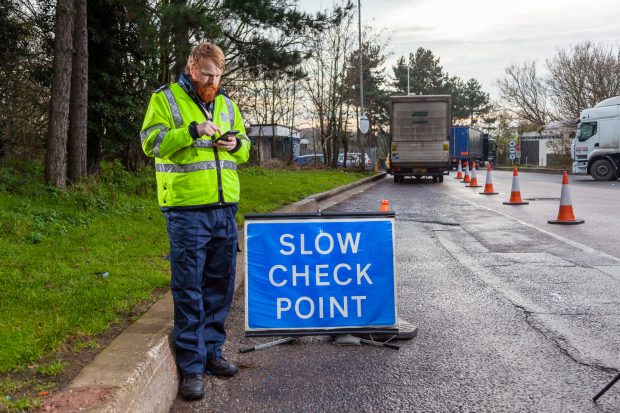
Quite the opposite.
All of the money from our fixed penalty fines goes to the Government to fund vital public services.
The only exception is the £80 fee we charge to free up an immobilised vehicle once a serious defect or offence has been resolved. This fee partially covers the cost of this action.
A large part of our enforcement funding comes from other DVSA income such as lorry and large passenger vehicle testing fees.
Above all, our fines aim to deter commercial drivers and operators from breaking the rules and not maintaining their vehicles.
Other deterrents include prosecutions and referring more serious offences to the Traffic Commissioner.
4. Human error causes most accidents, why bother with vehicle defects?
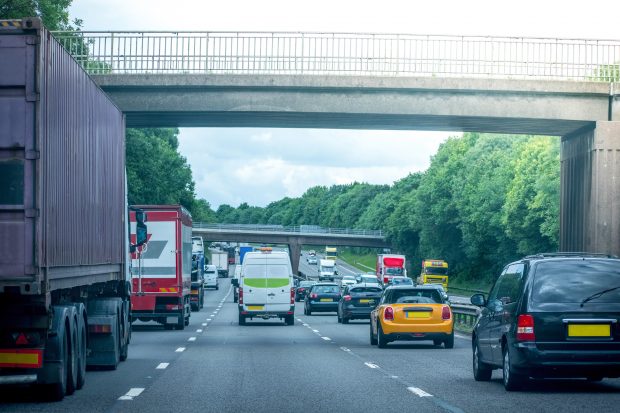
It’s true that defective vehicles account for around 2% of all road accidents.
However, this is a testament to our enforcement role along with car MOTs and annual tests for larger vehicles.
The UK has some of the safest roads in the world, which is partly due to our checks on commercial vehicles.
This myth also ignores our work on distractions such as mobile phone use and drivers’ hours which help to reduce accidents caused by human error.
5. We give out huge fines on any defect or offence
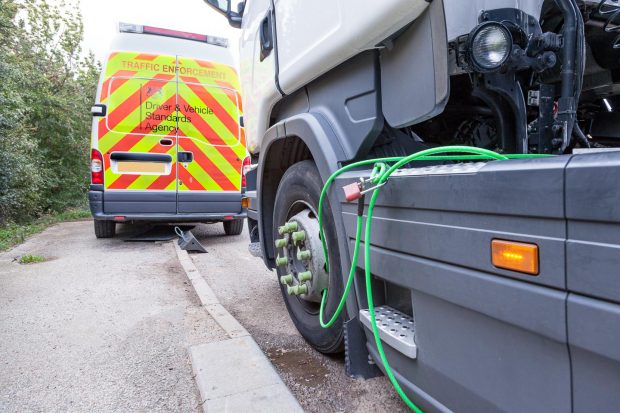
It’s all about the level of risk, so the fine or other punishment is in line with the severity of the defect or offence.
Just like a car MOT, we give out advisory notices on minor defects which need looking at but aren’t serious safety risks and these don’t involve a fine.
What about a faulty indicator bulb?
Whilst some drivers feel it’s not a major issue, we make sure the bulb is replaced before allowing the vehicle to move on to prevent an accident. We’ll only hand out a fine if the driver was aware of the defect and carried on with the journey.
It’s estimated 85% of defects can be spotted by the commercial driver during their required walkaround check before each journey.
6. We maintain Britain’s roads
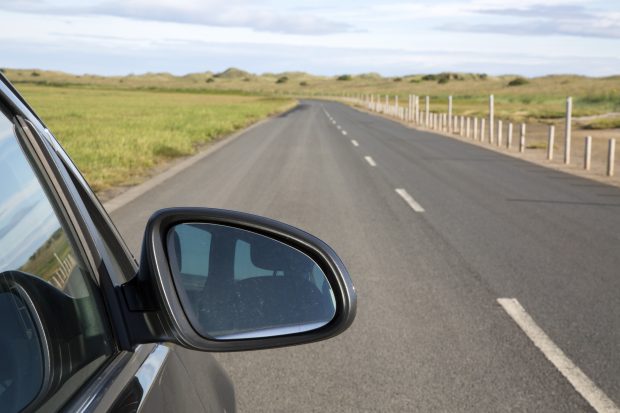
In short, no.
The clue is in our title – our role covers drivers and vehicles, not the roads themselves.
Councils are responsible for maintaining local roads, whilst Highways England and Traffic Scotland cover the maintenance of motorways and major trunk roads in England and Scotland.*
However, we are part of the bigger road condition ‘picture’ as we’re tackling overloaded lorries and insecure loads, which can cause significant damage to the network.
Setting the record straight
I hope this blog post sets the record straight on these persistent myths surrounding our work.
For more information on becoming an earned recognition operator and how it works visit our earned recognition webpage.
*South Wales Trunk Road Agent and North & Mid Wales Trunk Road Agent cover the major roads in these areas, and all Northern Irish roads are maintained by Transport NI.
7 comments
Comment by Steve posted on
Hi, with the current relaxation of the EU regs, can you please confirm if every shift effectively has an 11 driving limit obviously to a max of 60 / 96 and not if using the 7x24.
Or is it 1x11 hour driving limit
Thanks
Comment by RapidCarCheck posted on
It's good to see your targeting the biggest threat on the roads and not regular motorists. Keep up the good work keeping the roads safe!
Comment by Peter Riches posted on
In your first you highlight something I can never understand, why oh why are PSV rules different to LGV? They go faster, the driver can drive longer and even need less weekly break than his LGV counter part. Are we not all the same humans with the same physical limitations and personally it was this reason I never wanted to drive a PSV as you have all those passengers wanting you to get there as soon as possible, even if you are tired or not.
Comment by Mick Marlow posted on
Most of the things is Not correct here.
Comment by Paul Clifton posted on
As an operator I believe you do an excellent job in making our roads as safe as possible. However my only concern is that we hire all our trucks with full maintenance built in and I feel that should one of these vehicles on our operators licence fail its MOT when presented by the hire company this becomes a black mark on our licence. Is there no way that the rental/hire company is held responsible.
Regards
Paul Clifton
CEO Route Logistics Ltd
Comment by Peter (DVSA) posted on
The operator is responsible as detailed on page 73 of this guide - https://assets.publishing.service.gov.uk/government/uploads/system/uploads/attachment_data/file/785463/guide-to-maintaining-roadworthiness-commercial-goods-and-passenger-carrying-vehicles.pdf
Comment by Thomas Walker. posted on
If the hire company presents a vehicle for test in their name ie "their booking" with no Op. licence on it black marks cant be given to you.